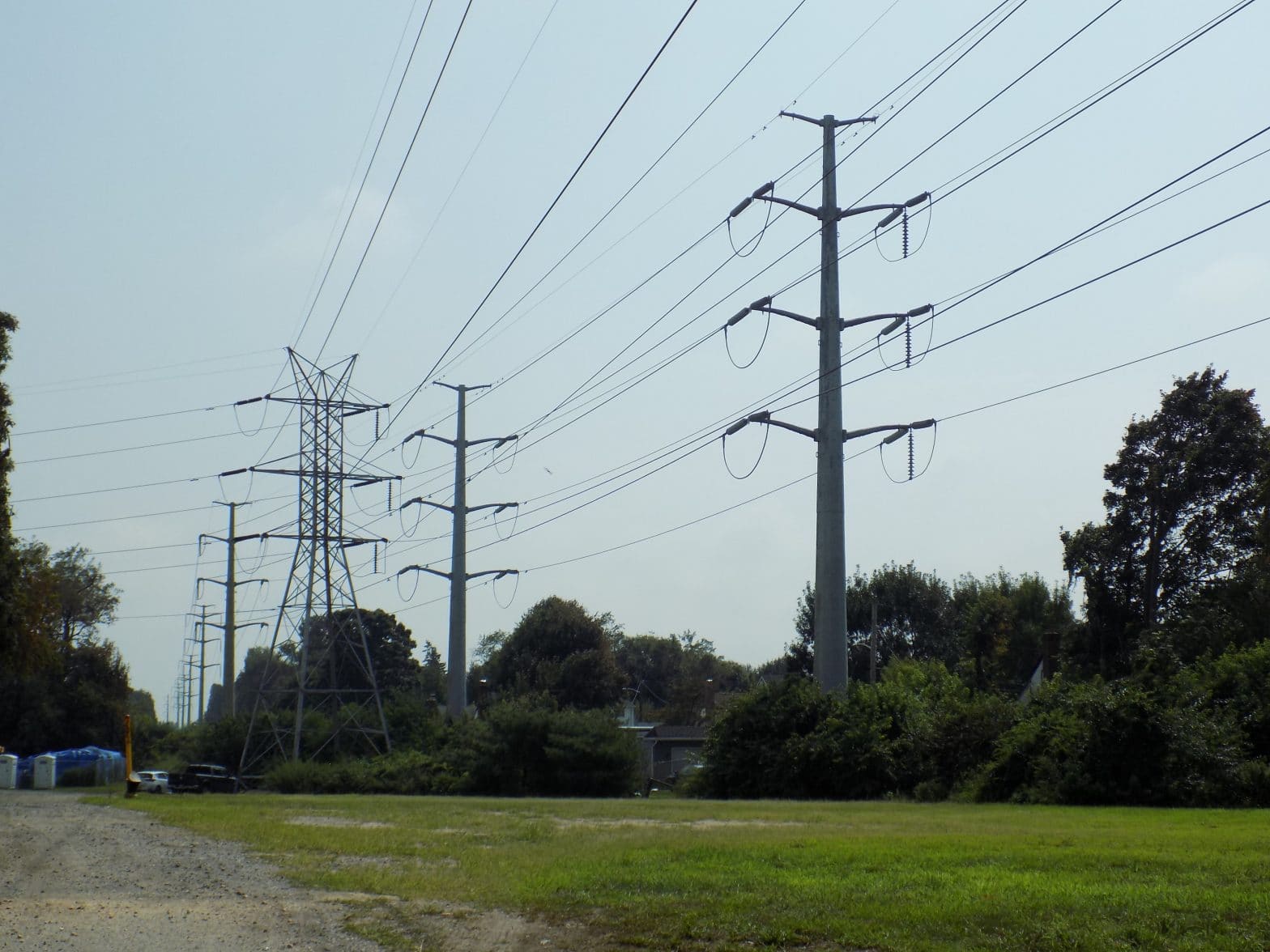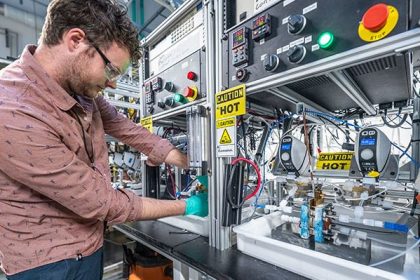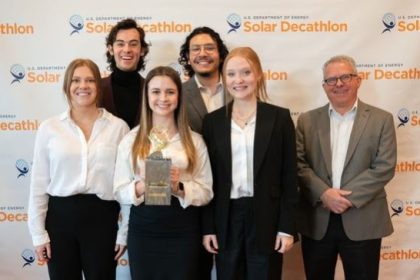Analysis: IRA Is Accelerating Clean Energy Transition, but Hurdles Remain

WASHINGTON — Nearly a year after being signed into law by President Joe Biden, the Inflation Reduction Act has undeniably provided a huge boost to the renewable energy sector, but the speed at which the U.S. actually moves to a clean energy future will be determined by factors the groundbreaking law didn’t address, according to a new analysis.
According to Wood Mackenzie, the global research and consultancy group headquartered in Edinburgh, Scotland, interconnection costs, transmission and the development of storage will all be fundamental drivers of how fast the energy transition materializes.
Unfortunately, write authors Ryan Sweezey, the consultancy’s principal analyst for North America Power and Renewables, and Robert Whaley, the director of its North America Power group, the IRA “does little to address significant bottlenecks” in the areas of transmission and interconnection.
“The number of new interconnection queue requests have increased by an order of six on an annual basis since 2012,” they continue. “Processes need to be streamlined and the transmission network needs to be expanded to facilitate increases in capacity.
“Although the IRA provides a pathway to achieve around 85% clean energy by generation share in the long term, it doesn’t address the need for transmission reforms, which will be crucial to allow the grid to be made available for the increased adoption of renewables,” Sweezey and Whaley add.
Biden’s signing of the Inflation Reduction Act on Aug. 16, 2022, may well go down in history as the defining moment of his presidency — the day he grasped victory from what had appeared to be a certain, irrevocable defeat and enacted substantial portions of his domestic agenda.
It all started on the 2020 campaign trail. It was then that candidate Joe Biden began touting what he called the Build Back Better Plan, a framework for recovering from the COVID-19 pandemic that would, if achieved, be the largest nationwide public investment in infrastructure, energy, environmental and social programs since the New Deal.
With Biden’s election, passing the plan became a priority of the Democratically controlled 117th Congress, which passed it as a $2.2 trillion reconciliation package in November 2021.
But no one was prepared for what happened when the bill moved to the Senate. Amidst a flurry of negotiations, Sen. Joe Manchin, D-W.Va., announced he would not support the bill, pointing to its cost and its potential impact on his fossil fuel dependent state.
Manchin then proposed an alternative bill, before deciding he didn’t like his version very much either.
With that, the reconciliation bill was dead, as the budgetary procedure requires 50 senators to vote for passage and not a single Republican would support it.
Then, in July 2022, Manchin and Senate Majority Leader Chuck Schumer, D-N.Y., struck a deal on a revised reconciliation bill that, in a rarity for Washington, proved to be a true stunner.
Believing they’d won the reconciliation bill battle, Republicans in the Senate agreed to back the CHIPS and Science Act, which would provide about $280 billion in new funding to boost domestic research and manufacturing of semiconductors in the United States.
It was only hours after the CHIPS Act passed 64-33 in the Senate on July 27, 2022, that Democrats and Republicans alike learned that Schumer and Manchin had been engaging in the secret talks that would result in the $891 billion Inflation Reduction Act.
Following the bill’s introduction, Wood Mackenzie forecast its passage would “usher in a boom era for U.S. renewables manufacturers,” a business sector it characterized as “ailing” up to that point.
As they ruminate ahead of the one-year anniversary of the bill’s signing, an analysis that also links to a webinar touches on a number of key points.
One of these, and perhaps most fundamentally, they say, is that there’s a common misconception that the Inflation Reduction Act’s technology-neutral renewable tax credits will up and effectively evaporate after 10-years’ time.
“Our view is that tax credits will be on offer for far longer; perhaps even for the next 30 to 40 years,” Sweezey and Whaley write.
“While the IRA states that the central tax credits will be available until 2032 — which is why it is commonly thought of as a 10-year law — there is another aspect to it: that those tax credits will apply until the U.S. electricity sector reaches 25% of 2022 CO2 emissions,” they continue. “And that’s the clincher. In our base case, the U.S. only achieves the 25% emissions threshold in the late 2040s.
“Rather than being a 10-year law, it’s far more likely that the tax credits on offer will be available for decades to come, creating massive investment opportunities for renewable technologies such as solar, wind and storage,” the authors write.
But despite this rosy projection, Sweezey and Whaley wonder whether the improvements witnessed over the past year will be enough to keep the momentum going over the intermediate haul.
While some grid operators and the Federal Energy Regulatory Commission have taken steps to reduce the red tape associated with supply chain constraints and interconnection issues — steps that have included streamlining processes and alleviating longstanding roadblocks that have limited new supply in the past — the authors believe interconnection reforms need to be developed “hand-in-hand” with changes to transmission if they are to be effective.
So will the Inflation Reduction Act truly accelerate the nation’s path to net zero? Sweezey and Whaley say yes; the only question in their minds is how quickly.
“The [Inflation Reduction Act] will create a clear boom in decarbonization technologies to set the U.S. firmly on its energy transition pathway,” they write. But how fast the energy transition materializes will be tempered not only by interconnection and transmission issues, but also by whether storage capacity can keep pace with developments.
“Storage will be crucial for solar in particular — and has a key role to play in how aggressively renewables can be adopted,” they continue. “Longer-duration storage will also be important. By the end of the decade, we will need batteries to last for much longer than the traditional 2-4 hours.
“Doubling and tripling battery life is currently being explored, but significant progress needs to be made toward making longer-lasting storage a reality in order to support the ramp up of renewables and accelerate the path towards the energy transition,” Sweezey and Whaley say.
Dan can be reached at [email protected] and @DanMcCue

























